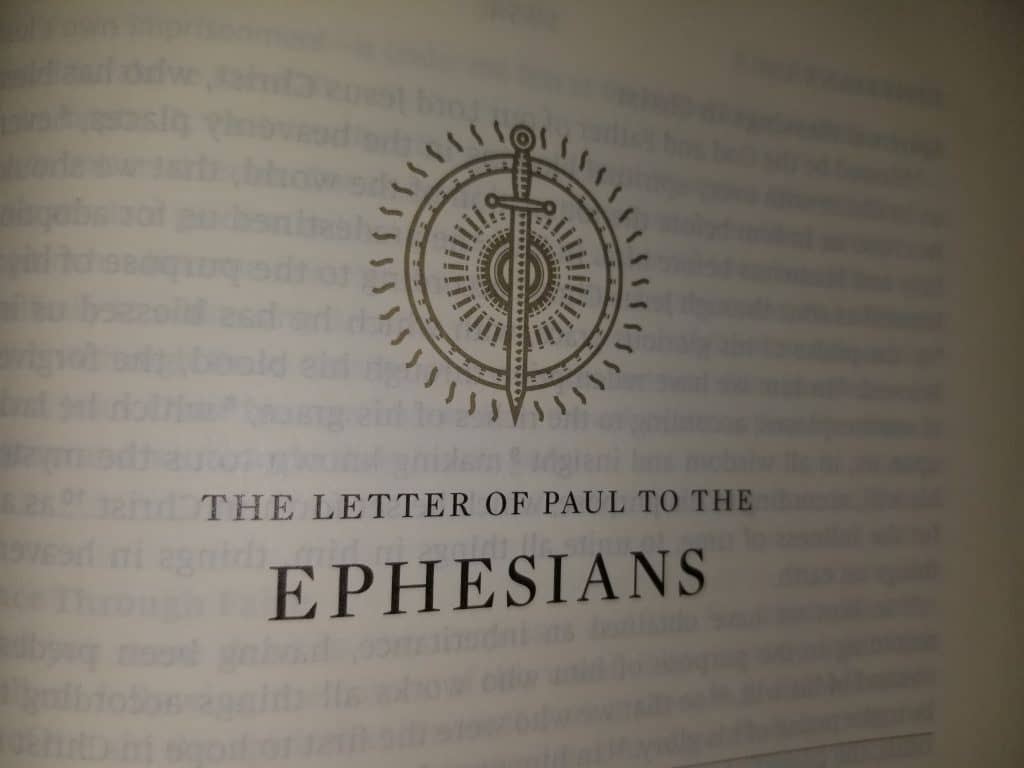⏱️ Estimated Reading Time: 7 min read
I remember when I was 8 years old. It was Christmas morning and while running to the living room I saw “it!” The very thing I asked for that year. It was a Hot Wheels Daytona 500 racetrack; you know the one with battery-powered cars! I played with that gift for hours that morning with my Jeff Gordon and Dale Earnhardt hot wheels zipping around that track. But to be honest, I don’t remember any other gift that Christmas. They have been forgotten due to the greatness of that Daytona racetrack.
When we come to Ephesians 1:13-14 I think sometimes we forget about this aspect of salvation’s gift. It is the forgotten gift; sometimes lose in the greatness of the Father’s gift (1:3-6) and the Son’s gift (1:7-12). The gift of salvation I’m referring to is the sealing work of the Spirit. The work of the Spirit is foundational to understanding “who we are in Christ.”
In order to understand the “gift” in its fullness we must understand the role of the Spirit throughout the Old Testament and the New Testament.
A Theology of the Spirit in the Old Testament
The work of the Spirit in the New Testament must be understood in light of the Spirit’s work in the Old Testament. We are first introduced to the work of the Spirit “in the beginning” as the Spirit of God hovered over the waters (Genesis 1:2). What we see is that the Spirit is God’s agent of creation. Also throughout the Old Testament we discover that the Spirit empowers. For example the Spirit anoints the prophets, priests, and kings of Israel. It is important to realize that the Spirit wasn’t given universally to all of God’s people but only to a specific few. Yet even in the Old Testament there are promises that the Spirit will be poured out universally in the latter days upon those who believe in God (Joel 2:28-32). But first the Spirit arrives must be poured out upon God’s Chosen One (Isa 11:1-9).
A Theology of the Spirit in the New Testament
As we move into the New Testament Jesus Himself was anointed by the Spirit (as prophet, priest, and king – see Mark 1:9-11). Jesus was christened as God’s Anointed One. The Spirit empowered Jesus. Not only that but Jesus promised that the Spirit would be given to every believer (John 14:16). At then it happened! At Pentecost the Spirit was given to all believers in fulfillment of Joel’s promise (Acts 2). What we see in Acts in the acts of the Spirit through the apostles. However, in the earlier books of the New Testament we don’t see a full picture of the Spirit’s work. It’s not until we read the Epistles, primarily Paul, that we see the various tasks of the Spirit. In John MacArthur’s systematic theology he highlights 27 ministries of the Spirit. To limit the space in this article I’ll only list 10 ministries: The Spirit indwells (1 Corinthians 6:19-20), fills (Ephesians 5:18), baptizes (1 Corinthians 12:13), gifts (1 Corinthians 12:8-10), regenerates (Titus 3:5), convicts (John 16:8), guides (John 16:13), intercedes (Romans 8:26-27), sends (Acts 13:1-12), and resurrects (Romans 8:11). The New Testament presents other important ministries of the Spirit but I believe the idea is clear: the gift of the Spirit is vitally important to the Christian life.
Yet before we discussion Ephesians 1:13-14 let’s settle the misconceptions: first of all the Spirit is not a “force.” Second the Spirit is not part of God. Third the Spirit is not lesser than the Father and the Son. The Spirit Himself is God, coequal with the Father and Son, existing eternally with Them. As I paraphrase the Athanasian Creed, “The Father, Son, and Spirit are uncreated, immeasurable, eternal, almighty, God, and Lord. Just as Christian truth compels us to confess each person individually as both God and Lord.”
The Sealing Work of the Spirit
So what does Ephesians 1:13-14 teach us about the Spirit of God in the life of the believer? The truth is simple but astounding: In Christ We are Sealed. This truth can convey several realities. The Spirit brings security, authenticates us as believers in Christ, identifies us with Christ, and proves that God owns us. The meaning of “sealing” in the text means that the Spirit secures our salvation and is the mark of God’s ownership upon of lives.
When Did This Happen? The text provides the answer. You and I were sealed with the Spirit of God when you heard and believed. Not to be to technical but these two verbs are aorist active participles. The point Paul is making is that the moment we heard the gospel and believed the gospel, we were at that moment sealed with the Spirit. This means that the sealing of believers happened contemporaneous with us believing. Therefore, when you and I trusted in Christ, we were sealed by the Spirit.
Two specific truths stand out from the passage. First, the sealing is an action brought about by God. Here is the good new – we are not responsible to seal ourselves. This is God’s doing in our lives. Second, we are responsible to believe. In order to be sealed you and I must believe the word of Truth, the gospel of our salvation. So upon hearing and believing, God places His seal upon His marking us as His and securing our salvation.
The Link Between Pneumatology and Eschatology
Paul continues to demonstrate the importance of the Spirit. The text states that the Spirit is the down payment. This is powerful! The Spirit is the “down payment” or we can we “the first installment” of our inheritance, which is the redemption of the possession. Paul is showing the fullness of his pneumatology. The Spirit’s sealing work is the already aspect to our future redemption. The future has invaded the present and the Spirit is the proof of it. Pneumatology and eschatology are linked together. The Spirit proves the “already” aspect of our salvation, validating the “not yet” of our future redemption. This means we can rest in the fact that One Day we will be fully redeemed because we have already experienced the power of the Spirit.
I am convinced when Paul states “the redemption of the possession” is he referring to nothing less that us. The possession is us – our inheritance of salvation is to be fully redeemed by God. This is what we long for and this is what we need. We desire the fullness of redemption and One Day we will experience it when God inherits us as he fully redeems us. Right now we are set free from Sin’s power and penalty but not sin’s presence. But one day we will be set free when God fully possess us in redemption. Paul repeats the same refrain as he does in the previous verses. This work of the Spirit is to the praise of His glory.
The Need for the Spirit
There is no forgotten gift when it comes to the work of God in salvation. The Father choses us, the Son redeems us, and the Spirit seals us. To say it is different way: The Father planned salvation, the Son purchases salvation, and the Spirit protects salvation. Each person of the Godhead is at work in our salvation. The nuances of theology proper, soteriology, Christology, pneumatology, eschatology are all found in Paul’s beautiful and powerful introduction of Ephesians. And it brings it to a close by appealing to the work of the Spirit. Therefore, the Spirit is no forgotten gift. He is the proof of our election in eternity past, our redemption in the present, and our inheritance in the future. Without the Spirit we would know none of these amazing realities.




